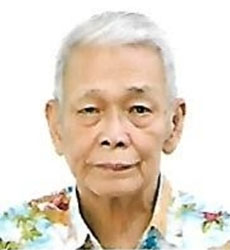Read this in The Manila Times digital edition.
FORMER Russian foreign minister Andrei Kozyrev has described the Russian forces that made a clumsy invasion of Ukraine as a "Potemkin military." The term has its origin in Grigory Potemkin, the 18th-century Russian military leader and lover of Catherine the Great, who went around constructing phony portable villages to deceive the Empress that the newly conquered or acquired territories under Russian occupation were doing well. After the empress passed, Potemkin would rush the villages downstream to await her sighting. From that time on, those inventions of the nobleman came to be known as Potemkin villages and his name is used to describe anything good in its facade or on first impression only.
It is not the first time Russian armed forces have been described in this way. In all the wars from the Napoleonic era, Russia has always had the edge in numbers over its adversary due to its huge population. Its having a vast land area means not only ample resources but also the luxury of defense in depth. In the wars that Russia has participated in from that period, it would initially land solid blows in the opening battles. But once the contest becomes one of attrition, Russia starts to falter. Its best defense is to retreat to the interior of its vast land mass with the assistance of its capable commander, "General Winter" (referring to its very cold weather), and then clobber the invading army in the depths of winter, as happened to the armies of Napoleon Bonaparte and Adolf Hitler.
Continue reading with one of these options:
Ad-free access
P 80 per month
(billed annually at P 960)
- Unlimited ad-free access to website articles
- Limited offer: Subscribe today and get digital edition access for free (accessible with up to 3 devices)


